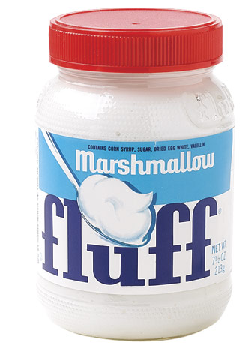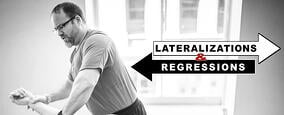
There's an employee outside of my department that I've known for some years. For pretty much the entire time I have known them they have been telling people they were planning on leaving for greener pastures soon enough. This has been going on for about five years now, but for some reason they have been unable to find a situation that better suits their needs. In the interim, let's just say that they have not been the model of ownership. Sure, they do their job, but along the way they also complain about their responsibilities, their poor compensation, and the state of their department in general to anyone willing to listen. They also fail to understand why it is that they are still stuck in a less than ideal circumstance and are unable to find another job. Hmmm, baffling.
You may recognize it, but the title of this post is taken from a quote by entrepreneur Shawn Carter who you may know better as Jay-Z. Over the years Carter has continually reinvented himself and excelled in every avenue that he's explored. He has gone from being a successful artist to owning a record label, his own major clothing line, a chain of upscale sports bars, and an ever increasing number of other ventures. Carter continually excels because he has the drive to succeed, but also because he understands that his name is a brand. In today's age many artists, athletes and other celebrities continually make poor decisions that ultimately paint their names in a negative light and simultaneously limit their future potential. While many of these people do not fully understand that their name is their brand, Carter grasps the notion that while he is marketing all of his businesses, more importantly he is marketing himself.
What does this have to do with you? Let's forget about the effect your actions have on your workplace for a minute and focus on the effect they have on you. Every decision you make, every meeting you attend, and every conversation you have impacts the way that supervisors, employees, and co-workers perceive you. When you complain about your surroundings, belittle your fellow employees or put forth a mediocre effort you are definitely influencing your image, but is that really the image you want to put forth? Your brand is what ultimately makes the difference between advancing in your profession and continuing to work in a position that is less than your ideal circumstance. You are your own business and you should be marketing yourself accordingly. Shawn Carter knows it. Why don't you?
Shaun Bossio is the Assistant Business Manager and ProShop Manager at Boston University FitRec.
He can be reached at sbossio@bu.edu
Topics:
basketball performance,
athletic training conference,
athletic training,
Strength & Conditioning,
Ownership,
shawn carter,
jay-z,
Good to Great,
discipline,
development,
Leadership
Everyone’s entitled to their own opinion but not their own facts.
When meetings boil down to people’s opinions, I usually have to leave. I know that we are each entitled to our own opinion. I get that.
But don’t confuse your opinion with facts.
“Well, I feel this would be the best solution…”
Did you look at the distributor? Is there a cheaper way to get the same product? What about the warranty? How does it fit into our business model or fit our core principles? Is there evidence based literature that supports its use and price tag? Will it serve a large group or can it only be used by one individual at a time?
Facts take time to investigate. They take energy and a “superdisciplined” approach. Opinions are like talk at the barbershop.
I’ll take an order of more facts please.
Art Horne is the Coordinator of Care and Strength & Conditioning Coach for the Men’s Basketball Team at Northeastern University, Boston MA. He can be reached at a.horne@neu.edu.
Topics:
basketball resources,
athletic training conference,
athletic training,
Strength & Conditioning,
Ownership,
Good to Great,
discipline,
customer service,
development,
Leadership,
managing
Sometimes it feels like we have so much to do, so many little fires to put out, so many tasks to accomplish in so little time that we forget we are running around with scissors. Although this may not be literally speaking, the fact is that running with scissors, at least as my mom always told me, was dangerous.
Instead of running around with scissors in your hand, pass them off to someone that should actually be doing the trimming. You see, when you’re doing the job that other people were suppose to do, you’re wasting your time as well as theirs. When you do other people’s jobs you are actually making your organization worse.
Your job as a leader is to ask tough questions and challenge the scope of your job and the jobs of those around you.
Don’t confuse activities with accomplishments.
Now put down the scissors.
Art Horne is the Coordinator of Care and Strength & Conditioning Coach for the Men’s Basketball Team at Northeastern University, Boston MA. He can be reached at a.horne@neu.edu.
Topics:
Strength Training,
basketball resources,
athletic training conference,
Ownership,
Good to Great,
discipline,
athletic trainer,
customer service,
development,
managing
I had a manager from another company give me a call recently for a reference on a employee that worked for me several years ago. He explained a little about the position and then I in turn told him a little about the employee's responsibilities here and how this particular person fit in with the group. When I was done, he asked me how this employee stood out from the rest. Great question. My answer was immediate and without hesitation; they were one of my top students because they took ownership of their position.
What is ownership exactly? It's the difference between someone who does the minimum of what is expected of them and someone that takes a legitimate interest in improving their workplace. Let's take the Ownership Quiz . . .
* During staff meetings, are you the person who volunteers for new tasks/projects or are you the person who lowers their eyes hoping someone else raises their hand?
* Do you take pride in the work you do on a day to day basis or do you simply do what is asked of you and be glad it's done?
* Do you take the initiative, bringing ideas for positive change to your office or are you the person that simply complains about how things could be better?
* If there is an issue outside of business hours, do your coworkers know it's alright to contact you or are they under the impression that would be a cardinal sin?
* Do you subscribe more to the idea of getting your job done rather than the phrase "business hours" or are you punching a clock at 9a and 5p every single day?
What if your well-being was tied directly into the performance of your whole office? Well, I've got news for you. It is. Ownership is about treating your position as if you owned your own business. It is about being a catalyst for positive growth in your environment regardless of whether you are the VP or an entry-level employee. When you own your position, you are telling your supervisors, your co-workers, and the employees under you that you care. You are providing a positive example for all and working towards bettering your environment regardless of the situation. The highest compliment that I can give to any of my employees is that they took ownership of their position. These are the ones that stood and continue to stand out from the crowd, even years later.
Are you taking ownership of your workplace or just getting in the way of those that do?
Shaun Bossio is the Assistant Business Manager and ProShop Manager at Boston University FitRec.
He can be reached at sbossio@bu.edu
Topics:
basketball resources,
basketball training programs,
athletic training conference,
boston hockey summit,
athletic training,
Ownership,
Good to Great,
discipline,
athletic trainer,
customer service,
everything basketball,
development,
managing,
Announcements

Do you like ice cream?
Do enjoy beer?
How many of you enjoy drinking beer and eating ice cream together?

Just because two things are both good, doesn’t mean that they are compatible or complimentary to one another and should go together.
The challenge with rehabbing an actively participating athlete is that the rehab in the sports medicine room may be good, and the strength exercises in the weight room may be good, and even some of the individual skill work on the court or field may be good as well. However, whether it be total volume, or time frame within the week, all the the "good" parts, might just not be all that good together.
The totality of all good things (or stressors) should be juxtaposed so that not one takes away from the one before, or the one after, but instead fit together to improve the athlete’s end performance profile. The main obstacle which prevents all those professionals who are caring for that athlete from being on the same page is that each one usually presents an argument for why the athlete should do x,y and z from a posture which protects their own interest and not necessarily the interest of the athlete. Don’t get me wrong, I’m all for arguing, as long as the arguing and debating is on behalf of the athlete and their best interest.
So when you’re done arguing why your athlete just has to do 30 weighted jump squats, or that extra set of straight leg raises check with the guys and gals down the hall and make sure that the time spent doing those exercises are actually in the best interest of the athlete and not what’s best for you. Because if you’re not willing to put all the pieces together for your athlete then you might just be serving beer sundaes this coming season.
Art Horne is the Coordinator of Care and Strength & Conditioning Coach for the Men’s Basketball Team at Northeastern University, Boston MA. He can be reached at a.horne@neu.edu.
Topics:
Strength Training,
basketball performance,
basketball resources,
basketball training programs,
athletic training,
Good to Great,
discipline,
customer service,
development
The next time you have the opportunity to implement a new technology or process to your line of work ask yourself; is it peanut butter or is it fluff?

Peanut butter is substantive, it is a great source of protein, and you can build a sandwich around it. Fluff meanwhile, well it's fluff.
We live in an age where technology changes the way we work almost daily. For example, those massive printing budgets for media guides and workout packets which we once considered a cost of doing business, are a thing of the past. But if we take those savings and invest them in high-tech, video-laced digital media guides, what is our end result? At the end of the day, it is the same information, at the same (or greater) expense and a whole lot of fluff.
Maybe we should consider reallocating the old printing budget for summer workout packets towards actual exercise research to make more effective training programs? In the case of media guides, rather than make the information we already share look more appealing with color and videos, why not invest in digitizing and organizing our historical statistics to offer a more comprehensive archive?
No matter what field or industry we work in, technology will continue to enhance the way we do our jobs. As managers and leaders, we need to be mindful of whether we are loading up on the peanut butter or on a whole lot of fluff.
Mark Harris is the Assistant Director of Athletic Development at Northeastern University.
Topics:
Strength Training,
athletic training,
discipline,
customer service
What’s keeping you from doing your job –I mean your real job?
Remember? The job you signed up for – practicing sports medicine. I know I signed up to provide care for collegiate student-athletes aspiring to make it big. I signed up to help and I know the vast majority of you did too. Unfortunately, as time passed I found myself practicing sports medicine less and less and spending more and more time filling water bottles, filing insurance claims and cleaning up at the end of the day.
I also remember the day it all changed back to the way I envisioned.
It was the day I decided to stop doing the “3-C’s” and started practicing sports medicine again. Tom Cronin, a mentor of mine and the Director of Sports Medicine at MIT in Boston, told me about the “3-C’s” over breakfast as I was complaining to him about all the work I was doing. He kindly pointed out to me that the majority of my work day was not being spent doing the work that I signed up for, but instead work consisting of the “3-C’s” – Catering, Clerical and Custodial. If you could manage to take away all the tasks involving any one of the “3-C’s” how much time would you have left in the day to actually practice your craft? No more cleaning whirlpools, filling water bottles or chasing down insurance companies for authorization of services (I had a co-worker who once proudly told me they sat on the phone for over 40 minutes obtaining pre-authorization for an MRI – how many patients could you have seen and cared for during that same time?)
So when you walk into work tomorrow, find just one task that is keeping you from actually doing your job and stop doing it.
There, feels good right?
Now get back to doing your job! The real job you signed up for.
Art Horne is the Coordinator of Care and Strength & Conditioning Coach for the Men’s Basketball Team at Northeastern University, Boston MA. He can be reached at a.horne@neu.edu.
Topics:
athletic training,
discipline,
customer service,
Seth Godin
That’s the way I was taught so it must be right, and that’s the way I’m going to continue to do it.
Who were the professors that taught these people?
The very best professors insist that their students challenge them. Challenge what they are teaching them.
Challenge the books, articles and resources that they come across – always continue to search for the truth. Go beyond the classroom in search of a better way. (I call it my own personal quest for the holy grail).
I remember being taught to do 15 chest compressions and 2 breaths when performing CPR and I’m sure you were too. But we changed that because we found there was a better way to do things. Then we found out that if we get an AED hooked up faster then that’s even better.
Hey, but that’s just the way I was taught.
Art Horne is the Coordinator of Care and Strength & Conditioning Coach for the Men’s Basketball Team at Northeastern University, Boston MA. He can be reached at a.horne@neu.edu.
Topics:
athletic training,
Good to Great,
discipline
Instead of bringing in a consultant to evaluate your workplace, bring an alien in and have it ask you difficult questions. The alien knows nothing of your job. Has no emotional attachment as to how the way “things have always been done.” The alien wasn’t taught how to apply a certain rehab technique or strengthening exercise at your alma mater. The alien simply wants to know why.
The Consultant is inherently biased – they’ve done your job, worked your hours, and sat in your desk. And of course, will tell you how to do your job more like the way they did it when they were in your shoes.
I mean, they were the very best at their job at one time – just ask them.
Art Horne is the Coordinator of Care and Strength & Conditioning Coach for the Men’s Basketball Team at Northeastern University, Boston MA. He can be reached at a.horne@neu.edu.
Topics:
athletic training,
discipline
Whoever says, “well, that’s just not my philosophy” didn’t read the research.
When we attach emotion, or our personal feelings to a certain way we treat patients we end up losing what’s most important – the health of the patient. Because it’s no longer about, “what’s best for them.” We already made it our own issue.
“I feel like…”
“I think that…”
“I was taught that…”
We need to get back to why we signed up to practice sports medicine in the first place. We need to get back to patient centered care and what’s best for them. That’s more difficult than it sounds, because what’s best for the patient sometimes isn’t what’s best for me.
Art Horne is the Coordinator of Care and Strength & Conditioning Coach for the Men’s Basketball Team at Northeastern University, Boston MA. He can be reached at a.horne@neu.edu.
Topics:
athletic training,
Good to Great,
discipline,
athletic trainer,
patient centered care






